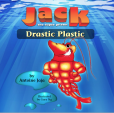
Showing 1921 - 1940 of 2602 results
Particle therapy update
ANSTO physicist will gain further experience in particle therapy technologies.
First synchrotron light is a milestone for new instruments at ANSTO’s Australian Synchrotron
NSTO’S major project to introduce eight new beamlines at the Australian Synchrotron has reached a milestone with the delivery of ‘first light’ to the new MEX-1 beamline.
Radon analytical facilities
Measurements of the naturally-occurring radioactive gas radon can be used to accurately categorise the degree of atmospheric mixing.
Breaking the mould: Leadership announcement
Dr Ceri Brenner appointed new leader of the Centre for Accelerator Science
ANSTO congratulates the 2025 Nobel Prize in Chemistry recipients
Insights into Titan’s atmosphere
Terahertz/Far Infrared beamlines assisted investigation into possible composition of lower atmosphere of Saturn's moon Titan.
Reconstructing the history of the Australian landscape
Million year lag time in transport of sediment in Murray Darling River Basin system.
Fine particle pollution peaks during bushfires
Recent catastrophic Australian bushfires produced extremely high levels of fine particle pollution.
Australia amongst the world's best in the international nuclear arena
On the international stage amongst the leading nuclear nations of the world, Australians hold its own. This status has been earned by ANSTO’s seventy-year history of safe nuclear operations, the application of nuclear science and technology to benefit society and nuclear stewardship role in Australia.
Investigating a prospective light-weight fire retardant material with superior properties
Scientists from UNSW and ANSTO have characterised the structure of two-dimensional transition metal carbides, carbonites, and nitrides (MXenes) materials, that could be used as a lightweight fire-retardant filler and in energy storage devices.
Transport revolution on the horizon following discovery of ‘stainless magnesium’
ANSTO fights cancer
Commitment to undertake health research.
Experimental evidence of quantum spin liquid
Researchers use Kitaev theoretical model to explain unusual phenomenon in two-dimensional material.
Updates on developments in small modular reactor technologies
There have been significant developments in small modular reactor technologies in 2022. The International Atomic Energy Agency expects small modular reactors (SMRs) to make an important contribution to achieving global climate goals and energy supply security. But with more than 70 SMR designs under development in 18 countries – including innovative reactors that are yet to be licensed and novel methods of modular manufacturing that are new to the nuclear industry – widely deploying SMRs in time remains a tall task.
Role at ANSTO

Australian Centre for Neutron Scattering Publications
Scientists and researchers within ANSTO's Australian Centre for Neutron Scattering area have been published in a wide range of publications and have presented at many conferences.

Jack the Super Prawn
Jack the Super Prawn lives in the Great Barrier Reef and uses his superpowers to protect the environment. Jack’s main job is to educate young readers on the impact of plastic and other types of pollution and to empower them to find a solution.
Created by Antoine Jaja, Jack’s first two adventure books entitled, “Drastic Plastic” and “Pollution Solution,” are now available in paperback in bookstores throughout Australia, as well as the ANSTO Shop. ANSTO provided scientific input into these stories that are helping to raise awareness of the impact of pollution on our waterways and the marine environment.
ANSTO Staff gear up for Sutherland2Surf
A changing of the guard in the 2018 ANSTO Top Coder Competition
The winners of the 2018 ANSTO Top Coder Competition were decided at two keenly contested grand finals with Robotics hosted by UTS and Coding held at the ANSTO Discovery Centre.